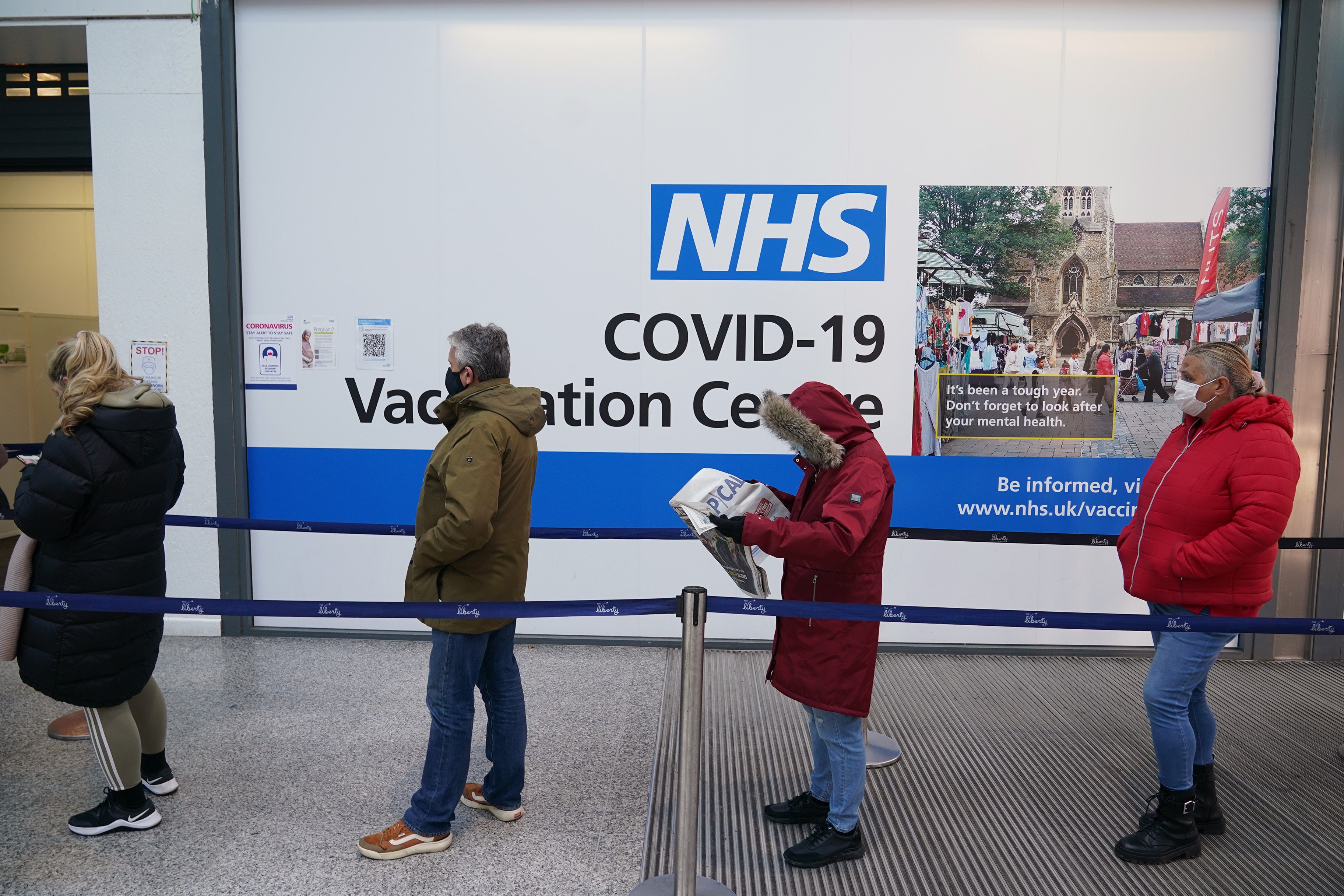Half of England’s omicron cases are in double-vaccinated people
Twelve out of 22 cases in England were found in people who were jabbed at least twice

Your support helps us to tell the story
From reproductive rights to climate change to Big Tech, The Independent is on the ground when the story is developing. Whether it's investigating the financials of Elon Musk's pro-Trump PAC or producing our latest documentary, 'The A Word', which shines a light on the American women fighting for reproductive rights, we know how important it is to parse out the facts from the messaging.
At such a critical moment in US history, we need reporters on the ground. Your donation allows us to keep sending journalists to speak to both sides of the story.
The Independent is trusted by Americans across the entire political spectrum. And unlike many other quality news outlets, we choose not to lock Americans out of our reporting and analysis with paywalls. We believe quality journalism should be available to everyone, paid for by those who can afford it.
Your support makes all the difference.The majority of all known omicron Covid cases in England have been detected in people that have had at least two vaccines, it has emerged.
Of 22 omicron cases confirmed by 30 November, 12 of them were linked to people who found out they were infected more than 14 days after receiving their last jab, according to health officials.
Two of these 12 cases were detected in people who had the first dose of their vaccine more than 28 days ago, according to the UK Health Security Agency (UKHSA).
Six were not vaccinated at all, and there was no vaccination information available in two cases.
None of the cases are known to have been hospitalised or died.
The UKHSA said that “most of the cases have a specimen date that is very recent and that there is a lag between onset of infection and hospitalisation and death”.
The data does not show how much the vaccine protects against infection by omicron, as the majority of delta variant-linked cases have been in people who are fully vaccinated.
More than 80 per cent of the UK population over the age of 12 has now had two jabs.
The UKHSA has now started to publish the number of new omicron cases per week.
As of 1 December, there were 32 new cases of omicron in the UK – 32 overall total so far – and more than 82,000 of delta, which has an overall total of at least 1.4 million.
All variants combined, there were 50,584 new cases recorded in the previous 24 hours as of 9am on Friday and 143 deaths within 28 days of a positive test.
The omicron variant has been detected in 30 countries so far, according to data compiled by the US government.
Scientists have said that omicron, which was first detected in southern Africa, is the Covid variant with the largest number of mutations – 32 – that they have seen so far.
The UKHSA has released a new risk assessment of the variant. It has sounded a “red” alert for its believed ability to evade vaccine and natural immunity due to the high number of mutations.
It also gave a “red” alert to the mutations appearing to be able to “reduce antibody binding”.
The agency also said that the variant is “transmitting rapidly and successfully” and that it is “biologically plausible” that it is more transmissible than the delta variant.
The UKHSA added that PCR tests are able to distinguish omicron from other variants.
It said that wastewater monitoring has found “very little evidence” of omicron before 21 November – but that recent data is being analysed.
The World Health Organisation has said that the omicron variant can be detected when the S gene is not present.




Join our commenting forum
Join thought-provoking conversations, follow other Independent readers and see their replies
Comments